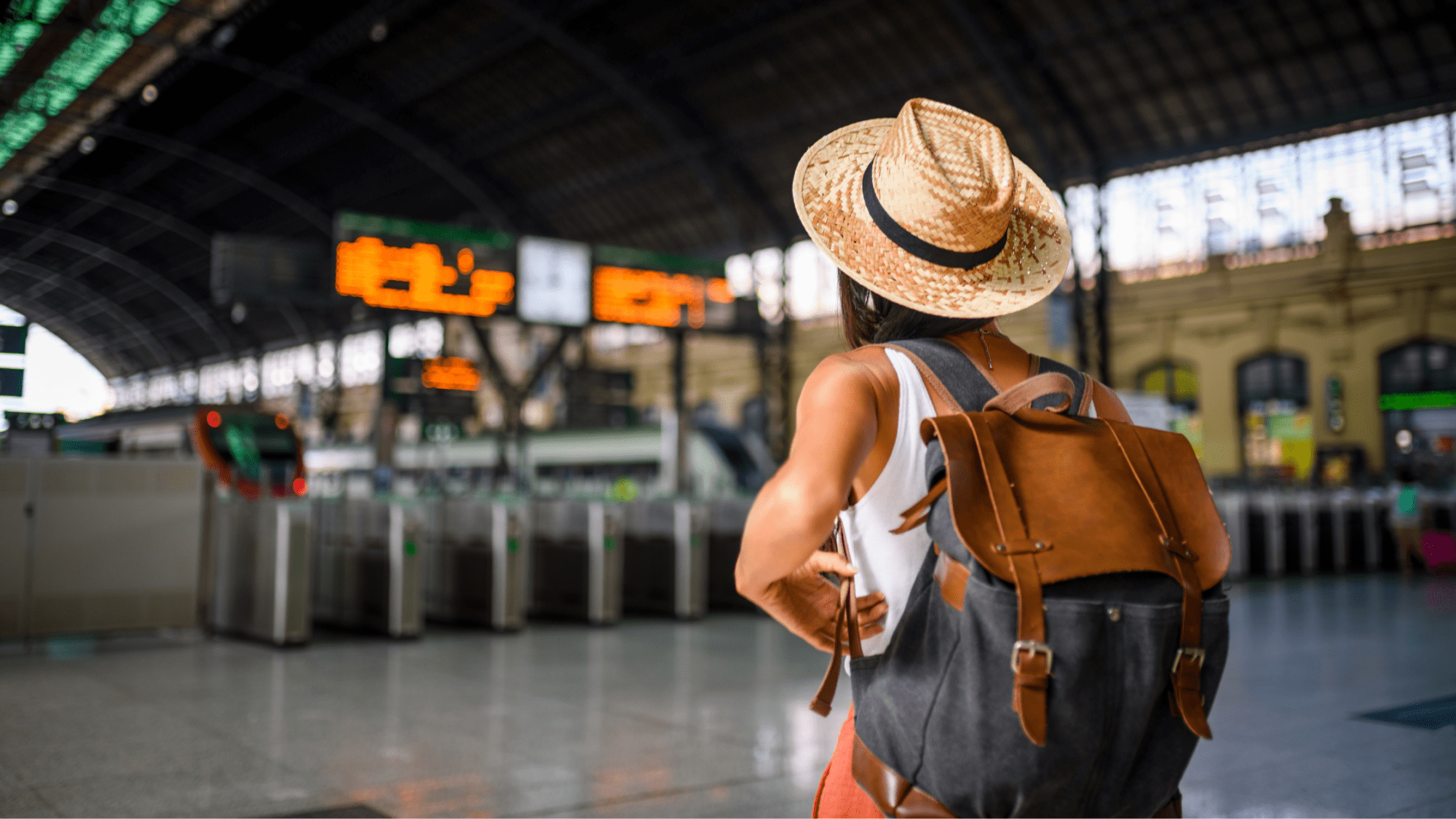
Solo travelers take multiple trips annually, making up over 11% of all travelers. Staying safe should be a top priority for every solo traveler. After all, around 45% of women and 20% of men report feeling unsafe or vulnerable when traveling alone.
The good news is there are practical steps you can take to minimize risks from the start. This includes securing your accommodation, avoiding dangerous areas, protecting your belongings, and remaining alert.
Apply these solo travel safety tips for extra assurance so you can fully embrace new adventures with confidence.
Securing Your Hotel Room
- Upon check-in, thoroughly inspect all locks, latches, deadbolts, and adjoining room access points. Engage every security mechanism, using provided room blockers if needed.
- Only open your door after verifying identities. If the hotel you booked is arousing your suspicion, use the peephole or ask for the employee’s name and ID slid under the door.
- Place the “Do Not Disturb” sign to prevent unneeded access. Inform housekeeping of your schedule.
- Check windows as well– ensure they lock, close curtains/blinds at night, and avoid rooms on the ground level.
- Request a room location near the elevator, lobby, or areas with higher foot traffic.
- Check for any maintenance issues like faulty locks or lights immediately and ask to change rooms if problems can’t be resolved promptly.
Avoiding Dangerous Areas
- Research the area and hotel before booking. Seek locally well-known brands in safe neighborhoods rather than obscure options.
- Ask the front desk team for a hotel map highlighting busy spots. Have them mark any wings or floors known to be quieter with less foot traffic.
- Scope out the premises in daylight first. Make mental notes of dingy hallways, stairwells, alcoves, and other poorly lit spaces to avoid later.
- Have staff escort you at night or order room service rather than dining solo.
- Don’t let your guard down in seemingly populated areas either. Be wary of strangers attempting conversation in lobbies or lounges.
- If you feel unsafe, return to well-lit lobbies with surveillance cameras and alert hotel security immediately.
Protecting Your Belongings
- Use room or lobby safes to stow cash, cards, IDs, electronics, and spare keys whenever possible
- Carry only essentials like debit cards and cell phones during daily excursions
- Avoid flaunting expensive jewelry or clothing that attracts unwanted attention
- Lock-checked luggage with TSA-approved devices and kept tags discreet
- Back up travel documents like passports and medical cards to the cloud
- Keep hotel key cards on you but separate from your wallet for quick access
- Review credit card and travel insurance coverage for loss and theft events
Stay vigilant, but don’t let fear of “what ifs” weigh you down either. Relax knowing you’ve taken key steps to secure your physical goods.
Staying Alert
- Scope out lobby layouts and security desk locations in case you need urgent help
- Note emergency exits and phones for reference even in routine activities
- Discreetly observe those sharing spaces like elevators, lounges, or saunas
- Avoid displaying your room number visibly or audibly to strangers
- Request to have your room keys and accounts unlabeled during check-in
- Walk with purpose and limit wandering on the property
- Stay in well-lit and well-populated sections of the hotel
- Keep phones charged and back up digital guides, maps apps for navigation
- Trust your instincts if someone makes you uncomfortable and report them
Additional Tips for Women Travelers
- Book rooms closer to lobby areas and avoid ground-floor rooms
- Be selective in sharing personal details – give only necessary info
- Research the laws and cultural norms of the area in advance
- Connect with other women travelers via hotel clubs or travel apps
- Learn basic self-defense techniques and moves before traveling
- Have hotel details/itinerary shared with emergency contacts
- Install safety apps with location tracking and emergency features
- Carry whistles/personal alarms to alert others if needed
- Report concerning interactions, comments, or behaviors to hotel staff
Tips for Senior Travelers
- Purchase comprehensive travel insurance covering health, medical, and evacuation needs
- Ensure regular medicines are well-supplied; carry prescriptions
- Have emergency medical/visa/passport info easily accessible
- Share detailed itineraries and hotel details with family/friends
- Carry cards with local doctor/clinic/pharmacy/police contact info
- Have cash for taxis/medical needs in case cards are blocked
- Check embassy sites for senior guidance and enrollment options
- Join group tours or expatriate clubs instead of going completely alone
- Carry a GPS-enabled mobile phone for emergency location services
- Use hotel services like breakfast alerts or wellness check-ins
Travel Solo, Not Alone
In summary, some planning and awareness make solo hotel travel far less risky. Securing your room, avoiding deserted areas, keeping belongings safe, and staying alert allows you to relax and enjoy yourself more, whether on a business or leisure trip.
While no one can guarantee safety, minimizing risks is possible. With some thoughtful precautions, you can address challenges if they arise while finding confidence in yourself and your decisions.
If you’re seeking a welcoming, art-inspired hotel with exceptional service, Hotel Chicago West Loop pairs a boutique atmosphere with security assurances. Here at Hotel Chicago West Loop, solo travelers feel at home with warm hospitality and attentive staff.
Visit our website to learn more about amenities, neighborhood perks, packages, and special offers perfect for solo travelers wanting a hotel experience that’s not just safe but fun.
Let us wrap up by saying that solo travel is rewarding when done thoughtfully. We hope these hotel safety tips allow you to embrace future adventures with an extra level of reassurance. Stay open-minded, stay alert, and stay curious.



